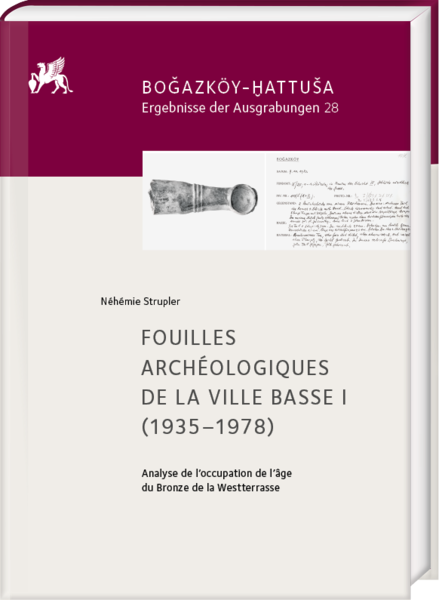par Néhémie Strupler
Fouilles Archéologiques de la Ville Basse I (1935–1978)
Analyse de l’occupation de l’âge du Bronze de la Westterrasse Analyse de l’occupation de l’âge du Bronze de la Westterrasse
Pour en savoir plus, cliquer ici
Souvent, l’étude des villes antiques se concentre sur les bâtiments monumentaux. Cependant, les quartiers résidentiels évoluent plus rapidement que les bâtiments religieux ou les édifices politiques et ont ainsi un potentiel alternatif pour l’étude d’une société. Ce volume de la série Boğazköy-Hattusa analyse le quartier résidentiel de la ville basse de Boğazköy au IIe millénaire av. J.-C. en se fondant sur les méthodes de l’archéologie numérique.
Antik kent aras¸tırmaları genellikle anıtsal yapılara ağırlık vermektedir. Ancak konutlar, dini ya da resmi yapılardan daha hızlı değişime uğradığı için, toplum incelemelerinde veri seçeneği sunarlar. Boğazköy-Hattusa serisinin bu bandı MÖ 2. bin’de, Boğazköy Aşağı Şehir’deki konut alanının dijital arkeoloji yöntemleriyle aras¸tırılmasını kapsamaktadır.

